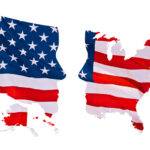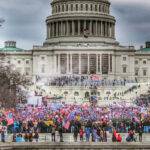Law students at Stanford University have been shouting down professors and other students, and the scene apparently has been repeated at other top-rated law schools around the country. That the uncivil behavior of polarization has reached universities does not come as a surprise, but it is, nevertheless, upsetting. I grew up in the shadow of a great university and was fortunate to be educated there. Mutual respect for and the obligation to debate the opinions of others was a core meaning of the word “university.” Students who shouted down lecturers and other students were escorted out. Period. National headlines are calling this a free speech crisis, but when does one’s right to be heard include shutting down the opinions of others? It does not, I’d argue, assuming their opinions were heard in open debate. But that assumption needs to be looked at as well.
 “Protecting” people from “exposure” to any beliefs other than their own seems the default position of humankind. Religions form their own
“Protecting” people from “exposure” to any beliefs other than their own seems the default position of humankind. Religions form their own schools to accomplish that, children are home-schooled to preserve the “right” set of values, and today, people follow only the news sources that fit with their previous beliefs. When we read the Communist Manifesto as undergraduates at the University of Chicago, we were “commie-lovers” and were investigated by Joe McCarthy’s House Committee on Un-American Activities. Years later, at another university where I was teaching, a teaching assistant asked a political science professor whether students shouldn’t be exposed to a differing theory. “No, no,” he replied, “that would only confuse them.”
schools to accomplish that, children are home-schooled to preserve the “right” set of values, and today, people follow only the news sources that fit with their previous beliefs. When we read the Communist Manifesto as undergraduates at the University of Chicago, we were “commie-lovers” and were investigated by Joe McCarthy’s House Committee on Un-American Activities. Years later, at another university where I was teaching, a teaching assistant asked a political science professor whether students shouldn’t be exposed to a differing theory. “No, no,” he replied, “that would only confuse them.”
The belief that open debate broadens the mind and leads to progress is the ideal that underlies democracy and diversity. To my mind, open debate is a central function of the university, second only to (or as important as) training in a chosen field. If the attitude of the political science professor above is prevalent, competing theories aren’t presented at all, much less debated, and if the dominant theory today is liberal and is presented as fact, then the complaint from the Right that students are being indoctrinated is valid. Legitimate conservative theory, excluding hate speech and conspiracy theory with no basis in fact, deserves a place in debate, and Stanford needs to look at its own practices.
If the last six years have taught us anything, it’s that those who are disenfranchised eventually rise up and march, yell, and do whatever they feel they must to be heard.



As always, you give us such perceptive analysis. I am reminded of the Master’s degree in Soviet Affairs that I undertook in Belgium. Two of our teachers were outspoken communists. I found their lectures and point-of-view fascinating, although it further cemented my appreciation of democracy. Our class had mostly military officers in them and, one day, en mass they all walked out. Frankly, it was their loss. I never thought I’d see something like that again and certainly not in my own open-minded country. Yet, here we are. These reactions to another’s point of view is a loss for us all.
Thank you, Patricia. I don’t understand people who don’t want to “contaminate” their minds.